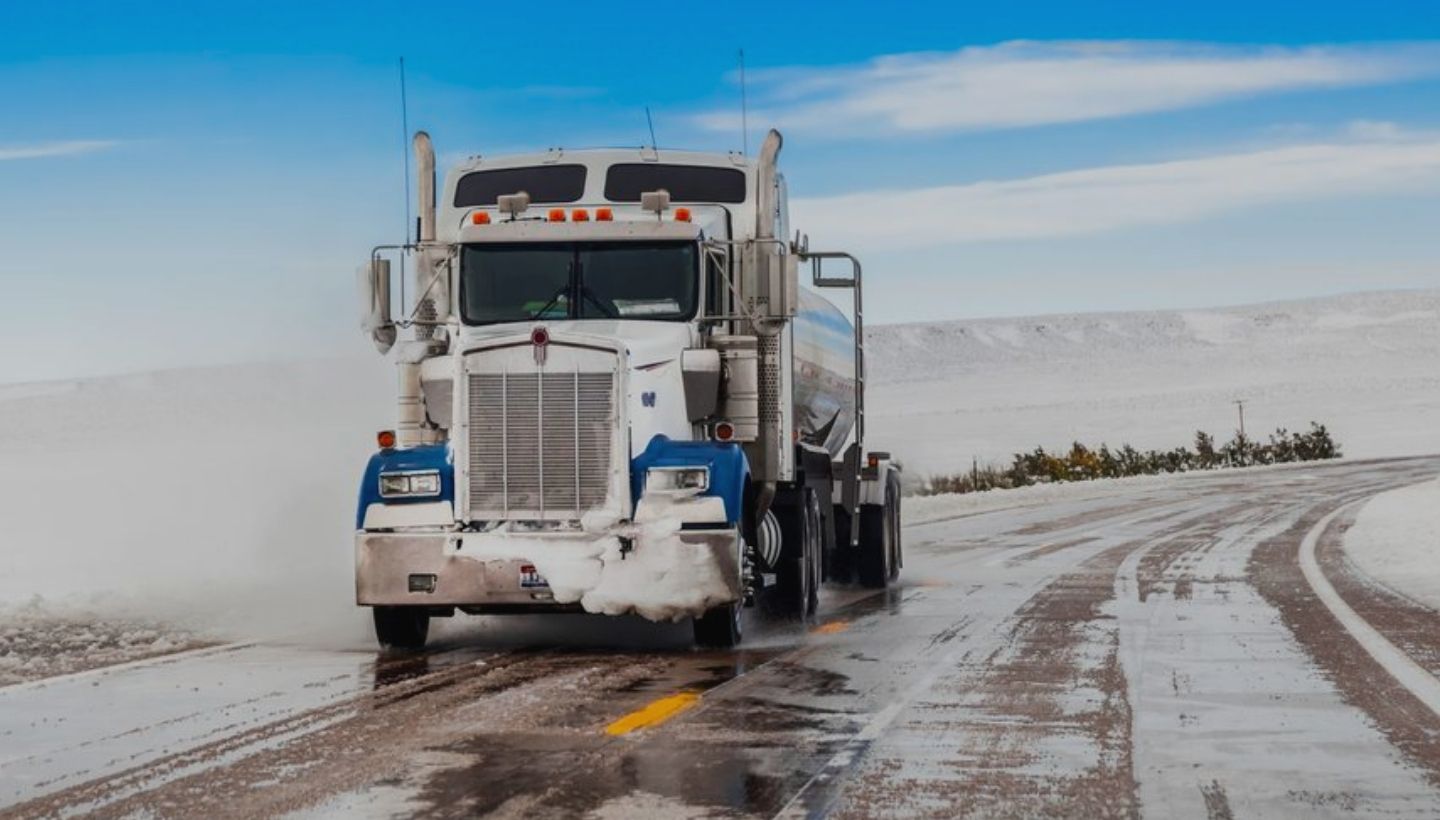Winter brings cold temperatures and harsh driving conditions that can negatively affect your truck. Spending the time to prepare your truck for the winter can prevent unnecessary accidents and breakdowns, which means less time in the shop and more time hauling loads and making money. Actively take steps to prepare your truck, and don’t wait to schedule preventative maintenance for your truck. We created a list of 7 things to include on your winterizing to-do list.
1. Inspect Battery
Batteries are affected by extreme weather conditions. A battery’s lifespan diminishes quicker in the winter season; it is prone to freezing and sometimes completely cracking. Avoid battery problems by inspecting the battery for connector corrosion, secure mounts, and charge state. Consider replacing any battery that may be over two years old.
2. Inspect Tires
You can’t keep your truck on the road without good tires. It is important to keep tabs on your truck’s tire pressure throughout winter. On average, your tire pressure should be between 85 PSI to 105 PSI. Cold temperatures can slowly reduce tire pressure, which impacts tire tread life, fuel economy, and your safety. If you do a lot of driving in areas with winter road conditions, such as lots of snow and ice, you should have tire chains installed.
3. Install Engine Block Heater
Using a block heater improves your engine’s chances of starting and decreases engine wear in frigid environments. The block heater keeps the engine warm overnight and increases the engine’s chances to start well in cold temperatures. Diesel engines need higher cylinder temperatures, so they take longer to start-up in cold weather. Avoid the possibility of your engine not starting and install an engine block heater.
4. Invest in Fuel Additives
Fuel additives are important to ensure your engine runs efficiently during the winter months. Diesel fuel at temperatures below freezing can become thick due to paraffin, which is naturally found in diesel fuel. To prevent any thickening, use anti-gel additives each time you fill up your tank to ensure the fuel continues to pass through your fuel filter. Review your owner’s manual to determine which additives will work best with your truck.
5. Inspect Windshield and Windshield Wipers
Your windshield gives you visibility while on the road. Inspect your windshield for any chips or cracks. Cold weather causes stress on windshields and worsens any minor cracks. Avoid complete windshield replacement by repairing minor damage beforehand. Check your windshield wipers to prevent any further damage to your windshield. Invest in beam-style wipers, as they offer better protection against damage from ice. Also, look into heated wiper blades. These blades prevent ice buildup and other hazards.
Note: Ensure there is enough solvent solution to defrost the windshield and keep the washer fluid container from freezing and bursting.
6. Check Coolant Systems
Avoid roadside breakdowns from an overheating engine by properly maintaining your truck’s cooling systems. Check your radiator for leaks, inspect the hoses for bulges and look over the hose clamps for damage or loose components. Lastly, flush out your cooling system and replace it with the appropriate coolant for your truck.
7. Updated Emergency Kit
With all of the planning in the world, sometimes breakdowns and accidents are unavoidable. You never know when you may be stranded on the side of the road. The insurance of an emergency roadside kit can turn a dangerous situation into a minor inconvenience. Here are some items we recommend that you include in your kit:
- First aid kit
- Extra winter clothing
- Pair of winter boots
- Flashlight and batteries
- Battery tester
- Bottled water and canned foods
- Snow shovel.
- Flares
- Extra blankets
- CB Radio
- Excess coolant, washer fluid, engine oil
- Additional fuel filters and a fuel filter wrench
- Spare diesel fuel and fuel additives
- Tire chains
Be sure you refill it whenever you remove an item, or you may run out of things when you need them most.
Are you looking to schedule preventive maintenance for your truck? Use our online directory, BigRig411, to locate truck repair shops in your area.






